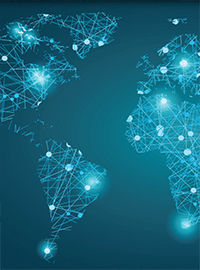| America, Land of the “Mostly Free” |
 |
|
By Ben Boychuk
Thursday, August 20 2015 |
“Hey, it’s a free country.” Do Americans still say that? Do we still recognize our country as the “land of the free”? The question is well worth pondering. When I was an editorial writer and columns editor for Investor’s Business Daily in the late 1990s, I would assemble an end-of-the-year column that asked: Are we as free as we ought to be? I’d ask my scholarly friends at the Cato Institute, the Heritage Foundation, AEI and Reason to weigh in with their expert opinions. Responses tended to range from “could be better” to “could be worse,” but the general consensus was that the United States at the end of the Millennium was still pretty darned free. If I asked the question again today, without a doubt the answer would be a sharp and unequivocal “No.” The plural of anecdote is not data, as the saying goes. Over the years, the Heritage Foundation, Freedom House, the Wall Street Journal and others have done a fine job quantifying the condition of liberty in the United States compared with the rest of the world. Almost all of the trend lines have downward trajectory. A survey published this week reinforces the reality that the leader of the free world no longer leads. The 2015 Human Freedom Index, a joint publication of Cato, Canada’s Fraser Institute and the Liberales Institut in Germany, ranks 152 countries using 76 variables measuring personal, civic and economic freedom on a scale of zero to 10, with 10 being the freest. Based on those criteria, the freest nations in the world are: Hong Kong, Switzerland, Finland, Denmark, New Zealand, Canada — Canada! — Australia, Ireland, the United Kingdom and Sweden. The United States ranks 20th — down from 17th place last year. “The U.S. performance is worrisome,” writes Index co-author Ian Vasquez in one of the great understatements of 2015, “and shows that the United States can no longer claim to be the leading bastion of liberty in the world.” Vasquez points to “the expansion of the regulatory state and drop in economic freedom, the war on terror, the war on drugs, and the erosion of property rights due to greater use of eminent domain” as factors in the U.S. decline. Reflect for a moment on the fact that the United States is now less free than Singapore, a very rich but nevertheless strictly authoritarian state where the sale of chewing gum is forbidden and walking around your own home in the nude is considered a form of pornography and therefore illegal. The United States ranks below Jordan, a monarchy where all political parties have been banned since 1957. We are not as free as the United Arab Emirates, another monarchy where political dissent is not tolerated and arbitrary arrests and detentions are quite common. It’s tempting to question the validity of a survey that ranks Hong Kong as the freest place in the world. Remember, Hong Kong returned to China from British governance in 1997 with the promise of “one country, two systems.” Beijing granted the city-state wide-ranging freedoms unheard of on the mainland, including the freedom to protest. Turns out, “one country, two systems” was a sham. Surprise! Communists lie. Vasquez explained that Hong Kong is an outlier; its high-ranking “is due to its traditionally strong rule of law, and high levels of both personal and economic freedom.” Even that is arguable. Just this week, the Chinese government charged two leaders of Hong Kong’s pro-democracy movement with illegal assembly and incitement stemming from last year’s massive demonstrations against the government. More than 500,000 people turned out to protest Beijing’s decision to cancel free elections in 2017. The protests lasted for more than two months. Yet Hong Kong attracts billions of dollars every year in capital and investment. The United States, by contrast, now ranks 12th in the world for business creation and has the highest corporate income tax of any developed nation. This is a shameful turn in our history. It’s easy to take freedom for granted. Few Americans understand how federal, state, and local laws reach into virtually every aspect of their lives. True, it may not be illegal (yet) to walk around your house in the buff, but a “multiplicity of laws” (as James Madison called them) erode our liberties in countless, often invisible ways. How long, we might ask, before a phrase like “it’s a free country” becomes an anachronism, or a punch line to a joke? The answer rests with the wisdom the American people. |
Related Articles : |
























